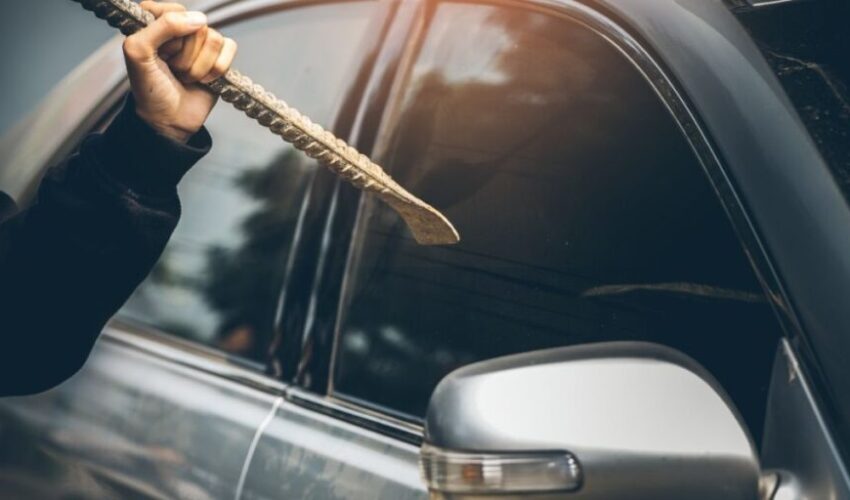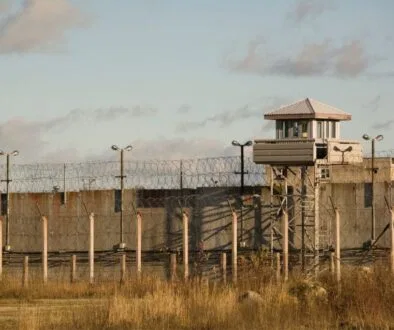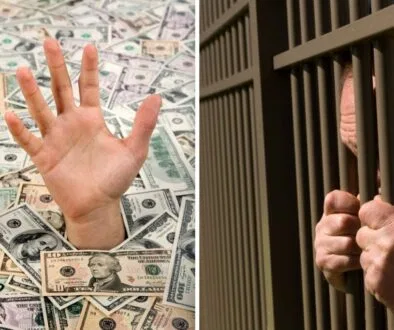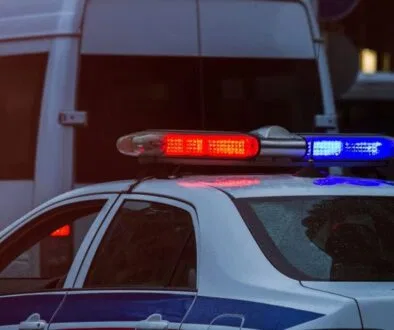When Being Poor Becomes A Crime: The Criminalization of Poverty

Published January 7, 2022
It’s not a secret that rich people with criminal records can easily get away with crime in the US (and in most of the world). While poor people can go to jail for even the most minor offenses.
As unfair as it sounds, it’s the reality we live in today. Our system itself is set up to put poor people at a disadvantage. Instead of helping them, it has instead allowed the criminalization of poverty. And it’s time that we, as a nation, put a stop to it.
How Poverty Can Lead to Incarceration in the US
When you take a good look into the factors that lead to the criminalization of poverty in the US, it all boils down to these four:
1. Strict Policing
As we all know, low-income neighborhoods are often subjected to strict policing. Crimes that seem too trivial, like sleeping in parks or broken taillights, become misdemeanor charges. These offenses would have just earned a shrug at best and a reprimand at worse in wealthier areas.
When people from low-income neighborhoods get arrested, they are often trapped in a seemingly endless cycle of debt, probation, and incarceration. It doesn’t just take away their freedom. It also takes away most of their rights, including becoming parents.
2. Exorbitant Fines and Fees
The court’s ruling would just issue a fine for certain minor offenses rather than send the offender to prison. But for poor offenders, these fines might as well have been a prison sentence.
You see, most of the time, an average worker can’t afford bail. For instance, the fine for not paying traffic tickets can be as high as $2,000 in some states. If the offender fails to pay that fine, the court can issue an arrest warrant. They end up in prison, get separated from their families, lose their jobs and even their homes. Basically, their life is destroyed because of the failure to pay a $2,000 fine.
But what the poverty law and the system itself failed to consider is why that person was unable to pay the fine in the first place. Did they purposely ignore the ticket? Or is it because paying the fine would mean missing meals for several days or fall behind on rent?
Obviously, these sky-high fines and penalties put low-income people at a disadvantage. Of course, rich people won’t have any problem paying a $2,000 traffic ticket. But if you’re a minimum-wage earner, that is an insanely high amount to pay for a simple violation.
This is even more aggravating because white-collar criminals and Wall Street fraudsters only get a slap on the wrist. They only get a few years in prison when most of them have intentionally defrauded thousands of people of their hard-earned money.
3. Ridiculous Policies
Aside from exorbitant fines and penalties, one of the reasons why poor people are filling up the country’s prisons and jails are ridiculous policies.
For example, in some cities, camping in public places is strictly prohibited. Though these anti-camping ordinances mean well, it is prejudicial towards homeless people. Instead of helping them get decent housing, the system throws them behind bars.
Chronic nuisance ordinances in some cities also contribute to the criminalization of poverty in the country. This ordinance aims to penalize landlords and tenants who call the police too often to their premises. But while this helps save taxpayer money, it also criminalizes the mere act of seeking police assistance. Instead of helping, it punishes domestic violence survivors from underprivileged backgrounds.
In states like Michigan and Missouri, prisoners are also charged for board and meals. Yes, even in prison, people have to pay rent. As if they wanted to be there in the first place. Besides, prison jobs (if they are lucky to have one) pay only a few cents an hour. They basically have no income while incarcerated. So when they go out, they often find themselves neck-deep in debt. After a few months, they find themselves in debtors’ prison, and as their prison debts pile up, the cycle continues.

ADVERTISEMENT
4. Institutional Racism
Whether we admit it or not, racism is still very much alive in the country. In fact, it has seeped so deep into our society that it affects almost every aspect of it, including our criminal justice system and police enforcement.
This is evidenced by how low-income African-American neighborhoods are more strictly policed than others. Under the guise of enforcing community peace and order, many of them end up getting arrested even without proper evidence. And with the bail system and not enough money bail, they have to spend years in prison while waiting for trial. Even if they’re proven to be innocent years later, chances are they don’t have a life to return to.
The Role of Government in Criminalizing Poverty
Aside from the factors mentioned above, the government also plays a huge role in the criminalization of poverty in the country.
Did you know that excessive fines on non-jailable offenses started when the government proposed huge tax cuts? The tax breaks given to the rich were instead made up for in astronomical fines and penalties from offenders. So it’s basically taking away taxation duties from the rich and passing it to the offenders.
In a perfect world, that setup would have been ideal. But as it is, those fines barely affect the rich. Yet, it creates an unnecessary burden for the poor. And it’s unnecessarily sending them behind bars.
Reduce Your Jail Call Costs By Up To 90% Per Minute With GlobalTel
GlobalTel’s inmate calling service lowers jail call per minute rates by up to 90% for jail calls from US facilities. Sign up now and use the special jail call phone number we create for you to eliminate the long distance jail call fees. Try GlobalTel for only $45.99 for 90 days. Make US/domestic and international jail calls at the local rate and stay connected to your incarcerated loved ones for less. Learn more about how to sign up for calls from inmates here.

This Content Is Fact Checked
Our esteemed team of specialists has thoroughly validated the accuracy of this information. Discover further details about the rigorous editorial guidelines for our website here.
ADVERTISEMENT

About The Author
Krizzia Paolyn is an SEO Specialist with a bachelor’s degree in Psychology. It has always been her passion to share her voice, and at the same time, to encourage other people to speak up.




